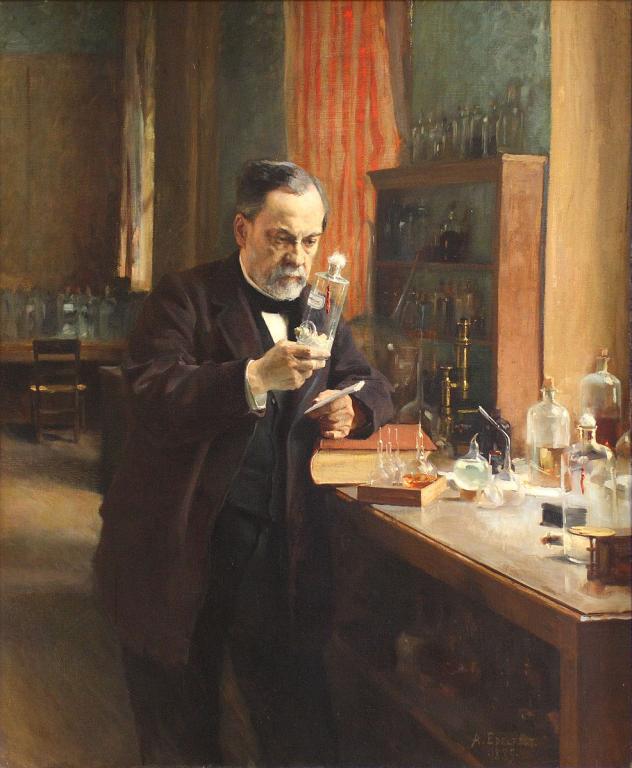
Wikimedia Commons public domain
These unpublished notes are focused on science. But they shouldn’t be taken as singling science out for unique censure. All human enterprises are fallible. Science is actually, on the whole, pretty good at correcting itself — though not quite as good as some naïve devotees of scientism imagine.
A note on humility.
There is no question that modern science, at least since (say) the days of Galileo, Copernicus, and Newton, has been staggeringly successful. Its achievements have been astonishing. It is one of the greatest enterprises of humankind, and it richly merits our admiration.
We are, of course, all aware that science has a history. Before Copernicus, for example, just about everybody believed that the earth was the center of the universe. George Washington probably died because of the leeches that his physician attached to him, in a very up-to-date medical effort to cure what may have been merely acute laryngitis or a very severe cold through bleeding. Lamarckianism gave way to Darwinism, which has been modified to various forms of neo-Darwinism. Newtonian physics has been revised by relativity and quantum theory.
In recent years, contrary to what the biology textbooks led everybody to expect, scientists have found colonies of microbes thriving near hydrothermal vents at the bottom of the ocean. Water, superheated by rising magma and laden with toxic substances like hydrogen, arsenic, lead, cadmium, and hydrogen sulfide, spews forth at temperatures rising up to 750 degrees Fahrenheit. Microbial DNA has been located two miles below the Antarctic ice cap. Living creatures have been found in solid rock at the bottom of deep mines, in brine pools that are five times as salty as the ocean, in volcanic rock twelve hundred feet below the sea floor. Where all living organisms were, until recently, thought to depend either directly or indirectly upon the energy of the sun (via photosynthesis, or by eating things that live by photosynthesis, or by eating things that eat things that live by photosynthesis), organisms have now been discovered that live off of sulfide, methane, iron, manganese, and hydrogen — which may suggest a greater potential for life on the exoplanets that we’ve begun to discover.
But let’s take a very down-to-earth branch of science, nutrition. When I was growing up, we ate margerine because butter wasn’t healthy and should be avoided. Now, though, butter is much healthier than margarine. (I’m not exactly sure when that change occurred; somehow, I missed the memo.) And eggs aren’t to be avoided anymore, either. On the contrary, they’re now some sort of superfood. (I missed that announcement, too.) Diet fashions seem to change like the seasons. In psychiatry, the lives of many patients were destroyed by lobotomies and shock therapy—therapeutic techniques that are now so far out of fashion that we can scarcely imagine a time when they were (but they most definitely were) the preferred methods of dealing with several mental health problems. (Consider the notorious case of Rosemary Kennedy.) Just a few decades ago, virtually every kid had a tonsillectomy. That was just part of growing up, at least in America. (I didn’t, though I’m not sure why not.) Yet we now understand that tonsillectomies are mostly unnecessary, and that, in at least some cases, they can be problematic or even occasionally dangerous. We used to know that ulcers were caused by stress, or by excess stomach acid. Now we know that most ulcers are caused by a bacterium known as Helicobacter pylori or by the use of aspirin or nonsteroidal anti-inflammatory drugs. Since the German physician, psychiatrist, and academic Carl Reinhold August Wunderlich determined the mean human body temperature in 1868, everybody has known that it’s 98.6 degrees Fahrenheit (37 °C). However, in 1992, the Journal of the American Medical Association published a study in which that temperature was more accurately determined to be 98.2 degrees (36.8 °C). [Reference] It seems a small thing, but it’s pretty fundamental.
There is, in others words, good reason to be humble about our scientific understanding — just as in every other area of human endeavor.










